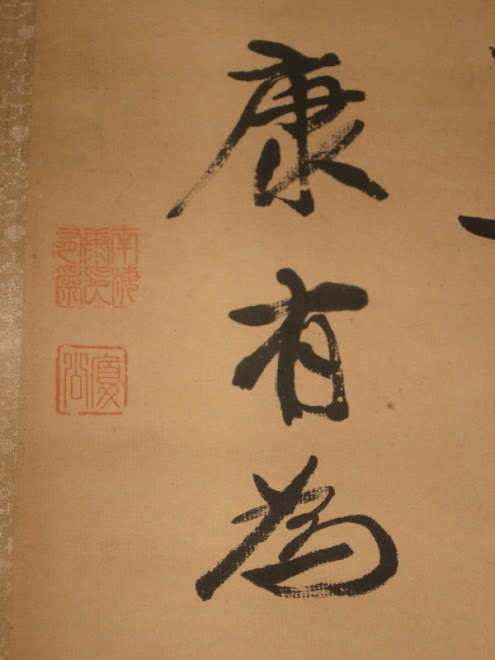Those interested in Kang Youwei and the Baohuanghui will want to see the new film by Evans Chan (陳耀成), Datong: The Great Society [Chinese title 大同:康有為在瑞典]. The DVD version is not yet released, but the film was shown in Hong Kong in December 2011 and will be in Taiwan in April. Baohuanghui Scholarship will post showings in the United States.
Described by Leo Ou Fan Lee in Asiaweek [English translation ] as a highly original film "that stands tall among all the documentaries I've ever seen," Datong is
about Kang's life in exile and presents an "alternative vision" about
Kang's radical reform agenda and its relevance today. Lee wrote:
As the founder of Baohuanghui (Protect the Emperor Society, (1899-1908), Kang has always been considered a conservative, even a reactionary. Yet the film opens with the comments by Arif Dirlik, a well-known American historian, saying that as contrasted to Dr. Sun Yatsen, who is “an outsider trying to come in, Kang is a dissident within the system.” And Kang’s political vision was, in his way, radical.
Chan
is a New York-Hong Kong filmmaker who became fascinated with Kang
after stumbling upon Kang's Swedish journals, which were published in
Hong Kong with an introduction by Swedish Sinologist Goran Malmqvist
that linked Kang's Datong utopia with his experience of Sweden's early
welfare state.
Chan told Peter Zarrow, Academia Sinica, in a China Beat interview:
I also feel quite strongly that Kang’s historical role deserves a reconsideration in light of contemporary scholarship and postmodern politics. Kang isn’t as accessible as other modern figures mainly because he stood at the tipping point of Chinese modernity. If both Kang and Liang Qichao are considered the inaugurators of Chinese modernity, Kang was the last major intellectual of the classical millennia, while Liang was the first one blazing his way into the vernacular present.
Last December, the Guangzhou-based newspaper, Southern Metropolitan Daily
(南方都市報), selected Datong as the first film to be awarded Movie of the Year in its Humane Life Awards (人文生活大獎). Chan and actress Lindzay Chan attended the ceremony in Hong Kong, where they met some of Kang's
descendants. Datong was praised for "dusting off hidden history, returning an entire, real body to our reflections. . . . it sheds the grand narrative and focuses instead on the singular destiny of Kang Youwei, through whom the film examines some crucial issues in that pivotal era. . . By presenting an alternative perspective during the Xinhai centennial, it has returned to our times fuller memories and humanity; it has patched up gaps in our history of thought."
An interview by William Cheung of Hong Kong Polytechnic University focusing on the aesthetic and filmic aspects of Datong was published in the September 2011 China Heritage Quarterly .


No comments:
Post a Comment